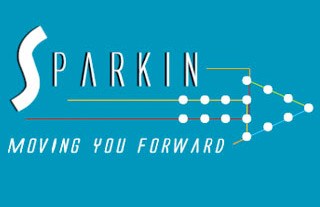2018 Miami Ad School Parkin Award
A fun reason to head down to Miami, to present the 18th Parkin Award of $1500 (plus $500 coaching).
Congratulations Rachel Eden!
The award goes to the most empathetic account planning graduate.
The award is judged by the students on the course as well as the teachers, teaching the course; (Not the school; Nor me)
Of the 18 winners to date, 9 woman, 9 men. Not planned, but in a truly inclusive world, this is how the numbers should be, or thereabouts!
#MiamiAdSchool #ParkinPrizeWinner #Empathy#AccountPlanningBootcamp
#LifeSkills #EmotionalIntelligence#UberTeamPlayer #ParticipantsDecide
#DerekParkinAward #Winner#Passionate #CareerOptimisation #Advertising
#SparkinCoaching #Careers#KnowYourAudience #ActionNotWords
#ConnectWithPeople #BetterLife #UnitedStates #Inspire #SparkinSearch
#CreativeStrategy#AccountPlanning #StrategicRelationships #CoreSkills #Mentoring
#Action
Becoming one of your agency’s ‘most valuable’ employees
Camels walking through the ocean…That doesn’t happen at least until I saw it, I didn’t believe it. Something almost as unusual as the individual on the career express train that never derails; The individual that’s never been on the wrong side of an agency restructure. Like the camel it’s unusual but still possible. Some potential keys:
Know thyself – Know your strengths and where you can add value and continuously develop them. Have an integrated mindset but be niche a speciality too.
Team player – Help others in the agency develop. Generously share your skills and expertise.
New Business – The lifeblood of any agency – Getting involved in new business and being good at it, both raises your profile and perceived value.
Money – One of the best ways to be valuable to the agency is to be invaluable in helping it acquire and retain income.
Wow factor – Ensure that people enjoy working with you/make them feel good – You do this through being easy and fun to work with but also because you create and innovate.
Over and above – Word hard but where you can and even though already busy, aim to do more than is expected of you.
Active assessment – Know your KPI’s and your clients. Be active in self assessment. Don’t rely on others to do this.
Future mindset – Plan ahead. Know what you want to experience/learn in your new job in preparation for the one after. Make yourself a ‘shoe in’ for it!
Market value – Be aware of your external market value. Be aware of alternative career opportunities; This will give you more confidence in your current role.
Mix it up – Taking time off allows you to sustain focus, energy and passion
Agency to Client-Side Means What?
At some point many of you consider a client-side move very often hoping for decision making authority or the ability to impact brand beyond comms’, Some of your peers that have made the move to the client-side kindly told me what the key difference is working for corporate America.. A few common themes emerged:
Ownership of work – “This isn’t a business I’m dipping my toe in to for a second, I’m responsible.” (Jackie Jantos, Spotify)
Skill Recognition/Proving Yourself – “Once client-side, planning speciates pretty quickly and is very different for a number of reasons not least because of an understanding of what planners do.” (Magnus Bair, HP Enterprise)
Iterative Nature of Work v Discrete projects – “On the client-side things never seem to be done” (Scott Reddick, Charles Schwab)
Broader more complex work focus – “You need to be able to work with big business and big processes.” (Julian Cohen, Constellation Brands)
That said, what do you think?
Stuart
Articles and commentary that might be of interest…
- Marketing Careers. Should you be an agency or a brand marketer?”
- Going In-House. Why You Should Take Your Agency Expertise In-House. AdAge – 09/17
- Developing your skill set on the other side of the tracks – CMO 08/17
- Hell on Earth or Nirvana? Client-Side Strategic Planning – Stuart Parkin 10/16
- From agency to Client. Making the switch – Campaign 07/16
- Working for a marketing agency versus client-side – Smart Insights 12/15
- Client Side Versus Agency Side marketing Careers – Morgan McKinley 06/16
- Instability and lack of calibrated pay among the key reasons agency folk head in-house – Marketing 01/17
www.sparkinsearch.com
Stuart: 646-280-5147
A ‘Complete’ Strategic Planner?
In an environment when strategic planners are expected to be a bit of everything, (quant and ’qual, digital plus analog, brand not simply channel, experience not simply story… I asked a number of strategic planning department heads what they thought is key.
What key quality matters most?
Of all the skills and attributes mentioned, it was ‘curiosity,’ that was top of the pile, Gabrielle Tenaglia, (Globality) reflecting others’ beliefs in the importance of a constant desire for growth. Closely following were attributes that allow the curiosity to be satisfied. ‘Generosity’ highlighted by Conner Huber, (McGarry Bowen) ‘Versatility’ by Shobha Sairam, (The & Partnership) while Andrea Ring (Big Spaceship) advocated the importance of confidence/strong point of view while Marta LaRock (Geometry) pointed to the importance of ‘passion’ as key. A number of you also mentioned ‘empathy’ as being pivotal to being effective as a strategist.
The good news is that despite all that is apparently needed for todays’ generalist to thrive, what you regard to be a truly effective remains what’s always been key, an interest in and ability to understand people.
Below are a few links to articles that throw further light on some of the traits you highlighted.
Enjoy!
Stuart
PS. Please let me have your ideas on areas you would like to be covered.
Articles and commentary that might be of interest…
- Curiosity is as important as intelligence
- Open-minded people have a different visual perception of reality
- Authentic Happiness – University of Pennslyvania
- Empathy is actually a choice
- Confidence matters as much as ability
- 5 must-read articles on empathy and UX design
- The power of generosity
- Versatility is the key to effective leadership
Syncing timelines for Success – Your Employer’s and your own
About to accept or start a new job – Why you might not be doing what you expected to be doing, at least not for a while.
You have reached a point in your current job where you are stuck, in terms of feeling as though you are no longer progressing.
Practically, the promotion you want is blocked or, you’ve worked on the same business for three years and the agency doesn’t want to move you or, you’ve worked on all the major accounts of the agency.
You might be frustrated because you don’t feel you can learn anything new, meanwhile you see the world and your peers, all progressing to bigger and better things.
Or, you’re dealing the nightmare scenario, a difficult boss or client that is making your life a living hell. You leave as nothing is likely to change any time soon.
You are ready to make a move. The good news is, you are presented with seemingly, a great career building opportunity. Team, culture, accounts, strategic approach all check out.
At this stage what could go wrong?
You clearly know better than anyone what is attractive to you. What role would allow you to excel, right? Well, yes. And with the information you have everything stacks up. So far so good.
Typically you are hired to address specific client needs but sometimes you are recruited more for where the agency aspires to be versus where the agency is now.
Most individuals will accept at face value, the reason why they are being hired. And most employers will hire specifically for the reasons they say they are hiring.
In all situations’ you are being hired for a recognized skillset. But, though your future employer knows what you can do, they may be hiring you for reasons slightly different to those you signed up for.
Key for you, what job do you want to do now, what’s mission critical versus those things that are ‘nice-to haves’? And do your priorities reconcile with the work your future employer does and expects you to do immediately, versus at some point in the future. Or, is there an understanding that there is a timeline before you get to really use your expertise in the way you want to. Sometimes, there is no understanding!
A classic example, you are hired by a digital agency whose work may be downstream of the lead creative agency. Your new employer hires you not because of an epiphany in the importance of creative strategy rather you are hired to act as a counterbalance to creative strategist working for the lead agency! It’s a defensive hire even if represented otherwise.
The most obvious (and critical) example of a disconnect between employee/employer timelines, intended or otherwise, occur when employers are hiring at the vanguard of organizational or business transformation.
You are promised that your expertise is key to moving the agency in the direction of that change. The problem is that the organization might not be ready for this planned evolution.
Organizational changes that needed to happen prior and concurrent to your hire did not happen or are happening but at a much slower pace. The result for you is, what you hoped to achieve in your new role might take two years versus two months.
A further threat for you, gate keepers/the old guard that might be sitting on agency revenue, oppose the change you bring, extolling what has worked in the past. These individuals or cliques may be perceived as too ‘important’ (despite the fact you were hired to change things) to challenge due to fear if they left or are fired, the revenues they are sitting on might go with them.
There will always be potential challenges beyond yours and to a large extent the agency’s control. It’s key for you to know that your expertise aligns with the organizational needs and ambition of your new employer for the medium but also for the short term.
Having a sense of who key stakeholders are is a given but knowing that they support your expertise is vital. Two action steps you should pursue at interview stage:
Have a few additional meetings beyond those you are directed to have; Ask a few more searching questions that you ordinarily might not ask. These two actions alone may be the difference between a poor move and a great career transition.
Ultimately, what makes your next career move truly redefining in a positive way, is not only clarity about your own objectives and those of your employer but to know that they and the key stakeholders of which they are a part, are aligned.

















